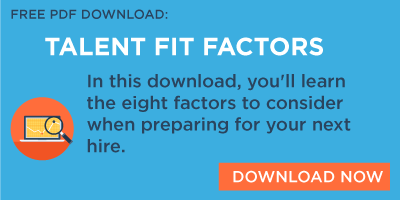
Electronics come with user manuals, food packaging comes with cooking instructions, furniture comes with assembly instructions, and clothing comes with care instructions. People are much more complex than the items you buy, yet people don’t come with instructions on how to get the best out of them.
What if you knew how a person was wired before hiring or coaching them?
Leveraging Talent Assessments for Hiring and Development
A job role-specific talent assessment can act as a “manual” and help you hire the right person for the position and coach and develop them to maximize their strengths and achieve their potential.
Understanding talent assessments and investing in employees' professional growth improves productivity, employee satisfaction, and overall performance.
Identification of Strengths
Talent assessments provide valuable insights into an employee's strengths and weaknesses and potential areas for growth and development.
They can reveal areas where employees naturally excel and may need additional support.
Personalized Development Plans
Talent assessments enable you to create personalized development plans for each employee. These plans can be tailored to address specific areas for improvement and capitalize on individual strengths, leading to more targeted and effective development efforts.
For example, if someone is naturally competitive but lacks the ability to create a plan and stay organized, you can motivate them by giving them a goal and discussing what the win looks like. You can also help them break goals into smaller milestones so they can celebrate success more frequently and stay on track.
Enhanced Employee Engagement and Retention
Investing in employee development through talent assessments can lead to increased engagement and satisfaction.
When employees see that their organization is committed to their professional growth, they are more likely to be engaged and committed to their roles. This, in turn, can improve employee retention and reduce turnover.
Succession Planning
Talent assessments can also identify high-potential employees suitable for future leadership roles. By identifying and developing these individuals, you can ensure a smooth transition when key leadership positions become available.
Best Practices for Using Talent Assessments for Employee Development
- Clear Communication: Ensure employees understand the purpose and value of talent assessments and how the results will support their professional development.
- Ongoing Feedback: Use talent assessments as a starting point for ongoing discussions about career aspirations, strength development, and performance feedback. When someone has a strength, share details about it and discuss ways they can continue to develop it.
- Continuous Improvement: Regularly review and update development plans to reflect changing business needs and individual growth.
Utilizing talent assessments for employee development can be a powerful way to develop talents, improve engagement, and enhance a workforce's performance.
By identifying employee strengths, you can create targeted and effective development plans that benefit both the individual and the organization as a whole.





